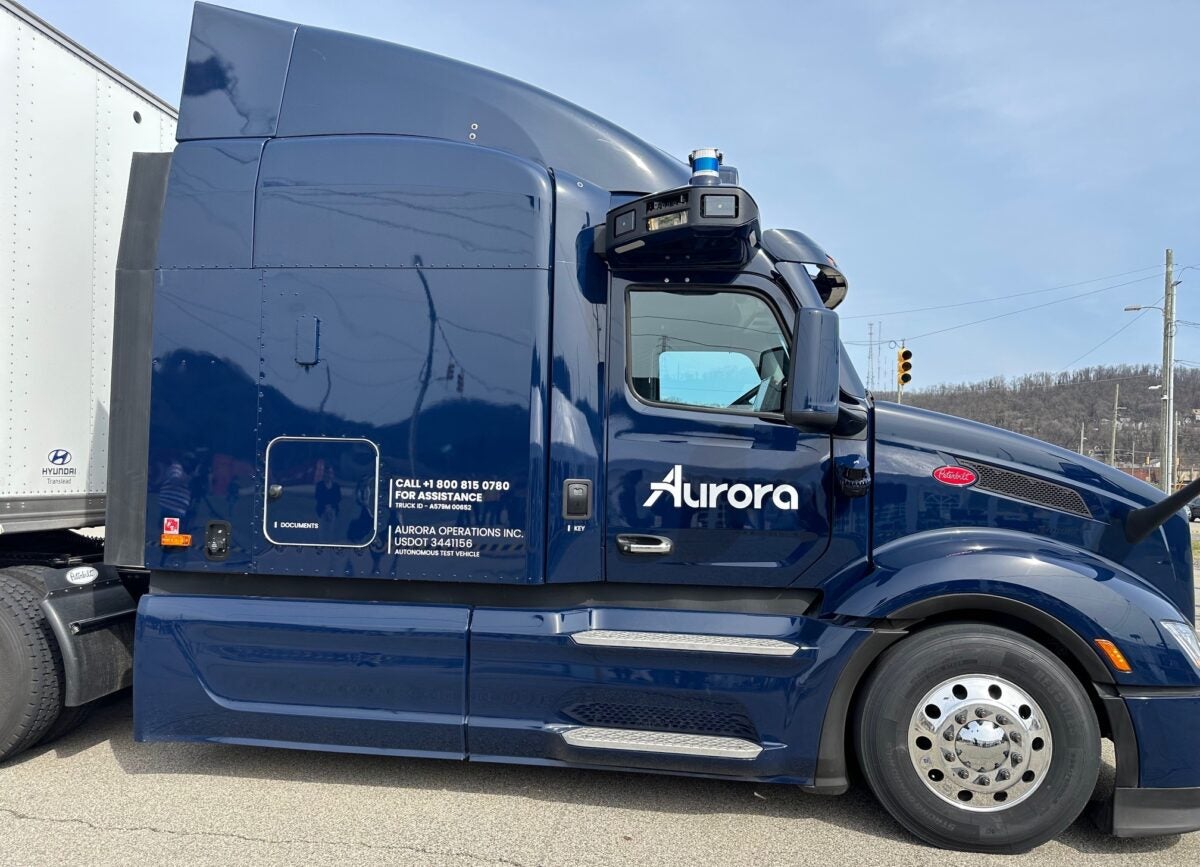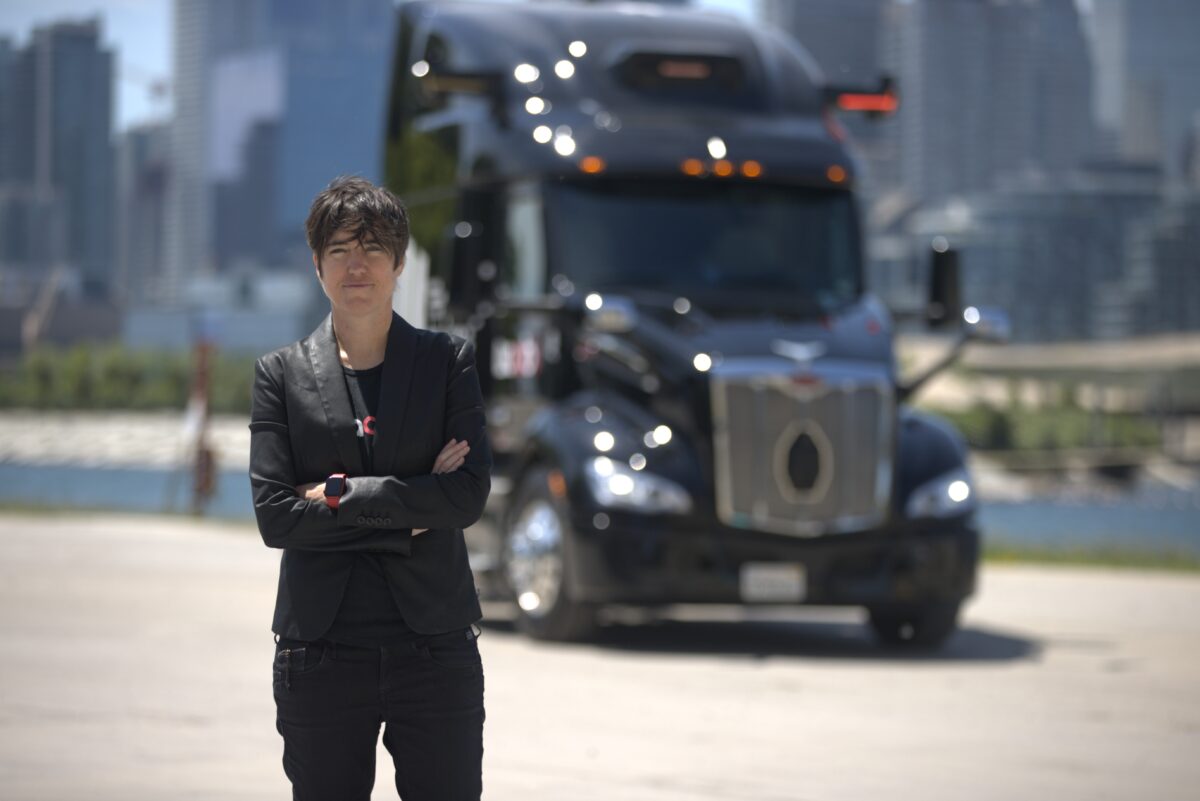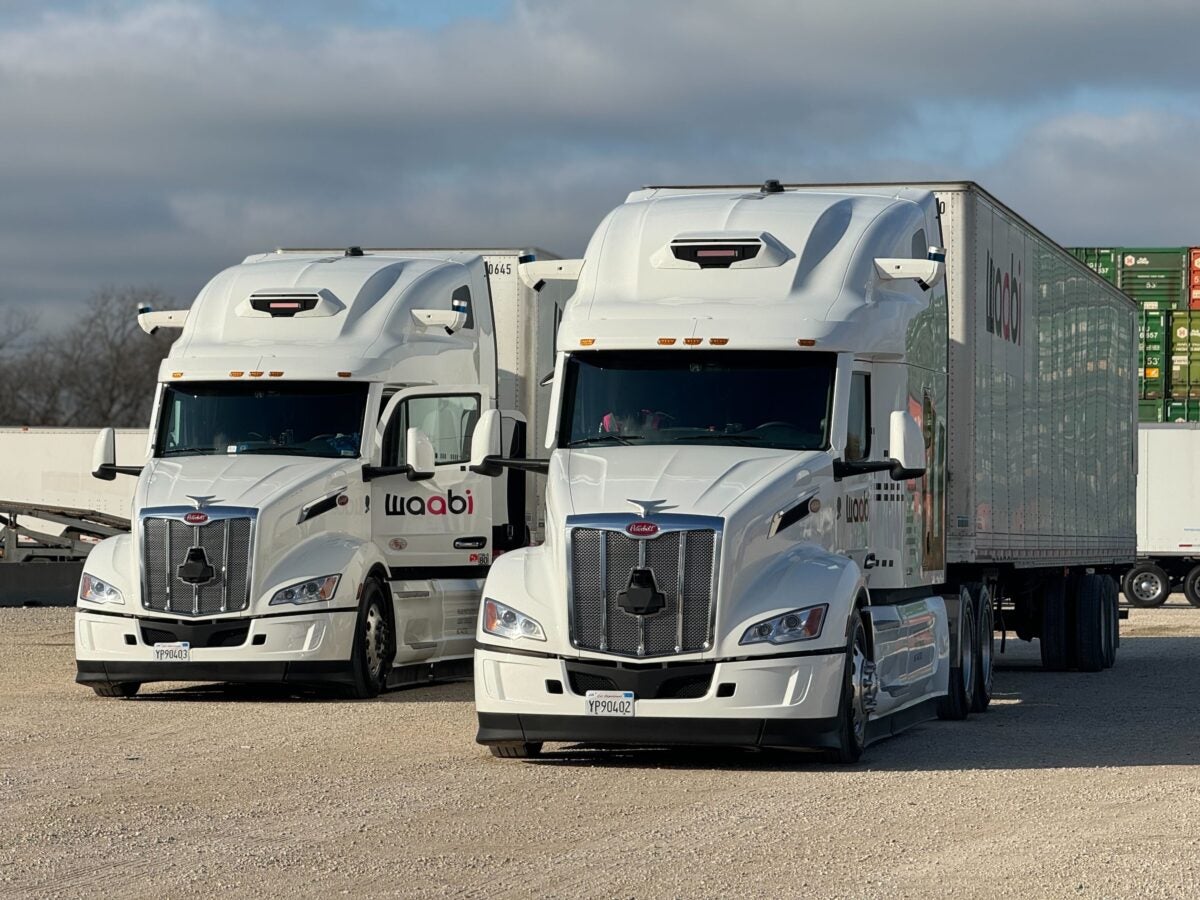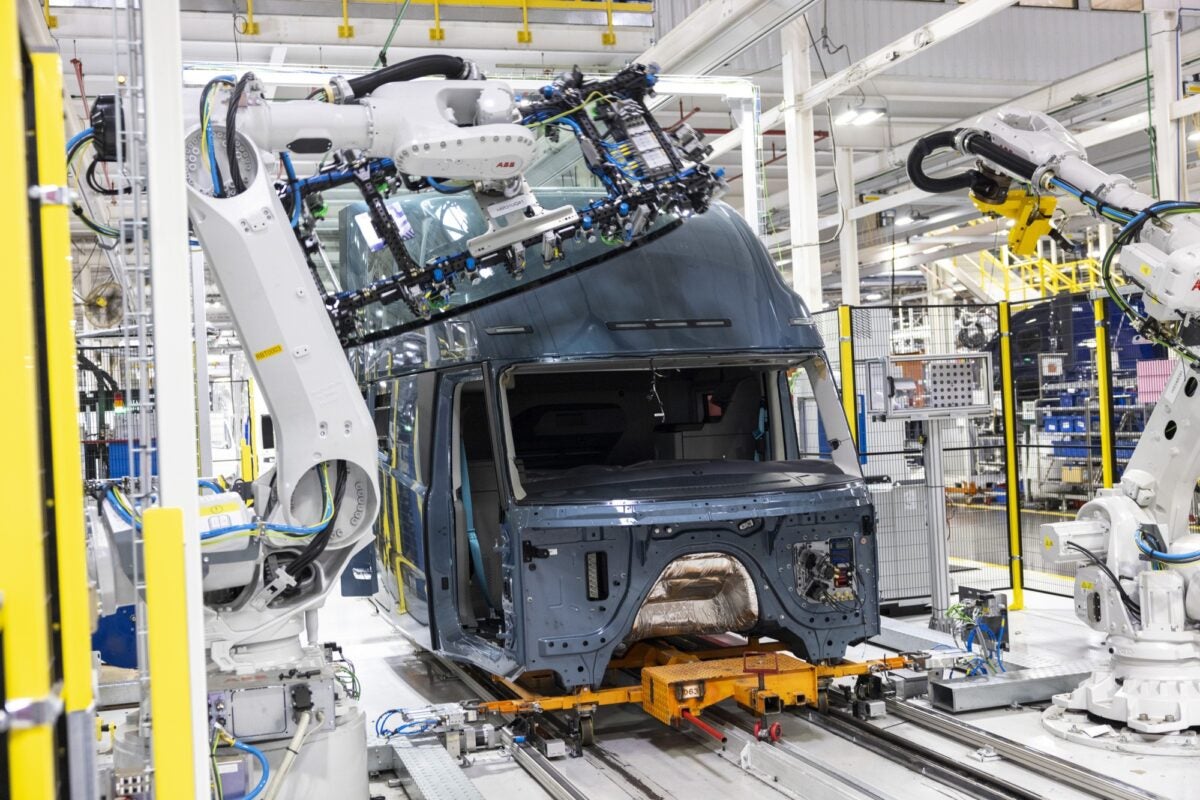Autonomous trucking pioneer Chris Urmson and relative latecomer Raquel Urtasun see AI as critical to making autonomous trucking successful. But they do not see eye to eye on the best way to apply it.
Urmson led Google’s Self Driving Car Project that eventually became Waymo. He co-founded Aurora Innovation in 2017.
When Uber sold its Advanced Technologies Group to Aurora in January 2021, Urtasun was Uber ATG chief scientist and head of research and development. She and Urmson know each other’s work but never worked together directly. Urtasun also has been a professor in the Department of Computer Science at the University of Toronto for the past decade.
Autonomous trucking leader board
Aurora is the acknowledged leader in autonomous truck development. It has the financing in place and has checked nearly every box to start commercial operations with 20 driverless trucks as soon as the end of this year.
It struggled for a time. Urmson in 2022 looked at the possibility of selling the business to Apple or Microsoft. Aurora acknowledges it will need more funding to scale the business to integrate manufacturing of its Aurora Driver with supplier partner Continental AG in 2027.
But as other autonomous players – notably Embark, TuSimple and Waymo Via – have failed, exited or paused U.S. operations, Aurora has emerged along with Kodiak Robotics as the two companies closest to commercialization. Daimler Truck independent subsidiary Torc Robotics is well along but sees 2027 for its driverless launch date.
Another startup, Plus, recently began working with Traton Group’s Navistar on Level 4 autonomy.
A $200 million capital infusion for Waabi
Waabi is a latecomer but expects to launch driverless trucks in 2025. It recently raised $200 million in a Series B funding round. Participants included several Aurora partners: chipmaker Nvidia; Khosla Ventures, which led Waabi’s Series A round in 2021 that raised $83.5 million; and Volvo Group Venture Capital.
Volvo Group is one of Aurora’s two redundant chassis manufacturing partners. Peterbilt and Kenworth parent Paccar Inc. is the other.
Uber invests and partners with both on safety driver-monitored autonomous runs on I-45 between Dallas and Houston.
What is verifiable AI?
In what could be considered dueling blog posts, Urmson and Urtasun laid out their approaches to AI in autonomous trucking. Aurora favors a hybrid approach that it calls verifiable AI. Wabbi is all-in on end-to-end AI, closer to cognitive Level 5 autonomy than machine learning-based Level 4. Both operate without human drivers. But that is where they diverge.
Urmson explains verifiable AI as addressing the challenges of AI alignment, avoiding hallucinations like adding glue to a pizza. It incorporates the rules of the road – stopping at a stop sign, going on green, not driving on the wrong side of the road, etc.

Take a lane change, for example.
“It seems simple: Find a big enough gap and maneuver under control into the next lane,” Urmson wrote in his June 13 blog on Aurora’s website. ”And if the adjacent lane is empty, it’s easy.”
Of course, if there’s a vehicle in the next lane, staying put should be obvious. But what if the driver in the adjacent lane is slightly slowing, suggesting an opening to make the move? Do you accelerate and do it?
“This is where artificial intelligence can solve problems that a rules-based approach to engineering simply can’t,” Urmson wrote. “But how do we make sure that an AI will be well behaved and not do something alarming or dangerous?”
Aurora sees general purpose AI as incompatible with autonomous trucking. Stopping at red lights is not a suggestion. It is just one encoded hard rule of the road.
“Those naively attempting to solve self-driving using a pure end-to-end system will find themselves bogged down in a game of whack-a-mole, much like the folks delivering large language models have,” Urmson said.
The case for end-to-end AI
Urmson didn’t call out Waabi by name, but he may as well have. Tesla and London-based Wayve also are pursuing end-to-end AI systems for autonomy.
“Waabi has pioneered a single end-to-end AI system that is capable of human-like reasoning, enabling it to generalize to any situation that might happen on the road, including those it has never seen before,” Urtasun wrote in a June 18 blog announcing the capital raise.
Leaving behind those who fear AI’s potential for conquering the world, Urtasun sides with those who see only the good in AI.

“The next leap forward will see generative AI graduate out of the virtual world and move into the physical world where it will interact with humans in their day-to-day lives,” she wrote.
Making a case that AI alone can form the basis of an autonomous driving system comes from Urtasun’s two decades of research. Can it operate in a provably safe manner? It already does in Waabi World, which Urtasun calls the “world’s most advanced generative AI-powered simulator” that bypasses manual code adjustments.

Like Aurora – and other autonomous trucking developers – Waabi is moving loads with safety drivers in Texas just three years after its founding. Uber Freight signed a 10-year partnership with Waabi in September. The goal: Deploy billions of miles of Waabi Driver capacity alongside carrier partners on the Uber Freight network during the next decade.
Which approach is right? Maybe both.
Uber Freight, an early freight partner of Aurora, and Volvo Autonomous Solutions are willing to bet on more than one solution.
“We feel confident that continued investment in a competitive autonomous driving landscape will not only stimulate additional technological capabilities but enable the evolution and maturity of the autonomous vehicle industry,” Nils Jaeger, president of Volvo Autonomous Solutions, said in a statement included with Waabi’s funding announcement.
George Gianarikas, a Canaccord Genuity analyst, tends to side with Aurora on the AI issue. He sees Waabi as a possible second source of autonomous systems for Volvo just as Daimler could turn to Aurora as an outside supplier if Waymo stays on the sidelines.
“While we would not be surprised by some market success from [Waabi], we continue to maintain that the North American Class 8 [autonomous] trucking market is Aurora’s to lose,” Gianarikas wrote in a June 19 investor note.
Briefly noted …
Nikola beat its projected sales numbers for fuel cell trucks in the second quarter, wholesaling 72 units, ahead of its high-end sales guidance of 60 units.
Hight Logistics, a Southern California port drayage operator, has signed an order for an additional 19 Volvo VNR Electric trucks, bringing to 24 its fleet of battery-electric VNRs.
Separately, Volvo has begun early production of ist new long-haul Class 8 VNL flagship models at a $400 million plant expansion in Dublin, Virginia.

Amplify Cell Technologies, the battery cell manufacturing joint venture of Daimler Truck North America, Paccar and Accelera by Cummins, broke ground on its $2 billion-$3 billion greenfield plant in Marshall County, Mississippi.
Workhorse Group is back in good graces with the Nasdaq after meeting the requirement for its stock to sell for more than $1 a share for 10 consecutive days. Workhorse made this happen by a reverse stock split, exchanging one new share for 20 existing shares in June.
Truck Tech Episode No. 72: Xos takes electric trucks where the demand is
That’s it for this week. Thanks for reading and watching. Not a subscriber? Click here to get Truck Tech delivered to your email on Fridays. And catch the latest episodes of the Truck Tech podcast and video shorts on the FreightWaves YouTube channel. Write to Alan Adler at aadler@firecrown.com with your feedback.
Oh, before you go … Here’s an early-bird discount offer for this November’s Future of Freight Festival in Chattanooga.











